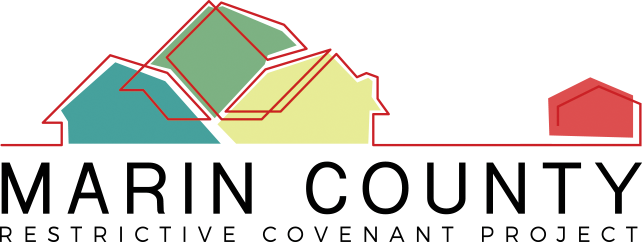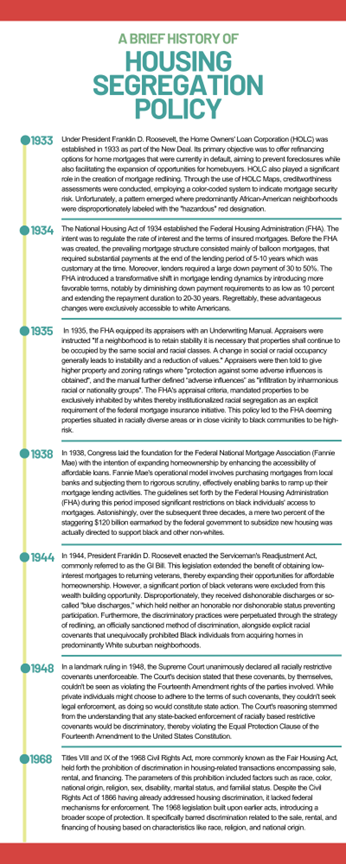Restrictive Covenant Project

Through the collaboration of the Community Development Agency, the County's Office of Equity and the Assessor-Recorder's Office, the Marin County Restrictive Covenant Project has been established. This initiative sheds light on the historical significance of governmental policies and programs intentionally designed to discriminate, which consequently led to the creation of segregated communities within Marin. The project takes a comprehensive approach to educate the community about the past, focusing on the pivotal role of racially restrictive covenants. These covenants once dictated that specific groups of people, particularly Black and African Americans, were prohibited from purchasing, leasing, or occupying certain properties. Although these discriminatory covenants are illegal today, many continue to remain in property deeds throughout Marin.
About the Project
The Marin County Restrictive Covenant Project is multifaced and intentionally interactive.
The Marin County Library’s Restrictive Covenant page, developed in collaboration with the California Room and student interns, showcases articles and resources about national policies that promoted segregation and at a local level the implementation and impact in Marin County.
The Assessor-Recorder’s Office offers homeowners the opportunity to modify property documents when an illegal or unlawful restrictive covenant is present. Also, residents can also check out a time progression map of racially restrictive covenants in Marin County which is updated monthly.
The Community Development Agency is leading the Housing Element discussion. Marin County residents are encouraged to provide input. The Housing Element is an opportunity to create pathways to future home development.
The Marin County Office of Equity offers a new way of making decisions about publicly funded projects called Participatory Budgeting. Community members interested in developing their own Marin County Restrictive Covenant Project proposal may apply for Participatory Budgeting to be considered for funding.
The County offers internships to high school students interested in research and school pilot curriculum to spread awareness off racially restrictive covenants and past segregation practices.
Community voices are invited to share stories, photos, or experiences about the impact of racial covenants in Marin and how it has affected your life and the lives of those you know and love. Sharing will help us learn collectively as a County.
Learn more about how all residents can participate.
History
A covenant is a legally enforceable contract imposed in a deed upon the buyer of property. Racially restrictive covenants refer to legal agreements that prohibit the purchase, lease, or occupation of a piece of property by a particular group of people and that prohibit the homeowner from selling or renting to anybody of a specific race or ethnic background.
“...hereafter no part of said property or any portion thereof shall be…occupied by any person not of the Caucasian race, it being intended hereby to restrict the use of said property…against occupancy as owners or tenants of any portion of said property for resident or other purposes by people of the Negro or Mongolian race.”
Restrictive covenants were an effective way to segregate neighborhoods and stabilize the property values of white families, and beginning in 1934, the Federal Housing Authority recommended the inclusion of restrictive covenants in the deeds of homes it insured. These racially restrictive covenants made it illegal for African Americans to purchase, lease or rent homes in white communities. In a landmark 1948 ruling, the Supreme Court deemed all racial restrictive covenants unenforceable. While Titles VIII and IX of the 1968 Civil Rights Act, also known as the Fair Housing Act, prohibited discrimination in the sale, rental, and financing in housing-related transactions based on race, color, national origin, religion, sex, disability, marital status, and familial status, many restrictive covenants continue to remain in property deeds throughout Marin.
Contact
For any questions about the project, please reach out to Liz Darby.
